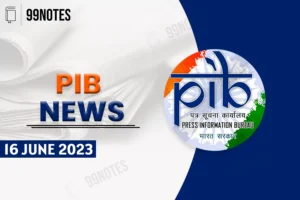17 June 2023 : The Hindu Editorial
The Hindu Editorial
17-June-2023
Daily Current Affairs For UPSC ,The Hindu Editorial Summary
1. Railway safety — listen to the voices from below.
Topic: GS3 – Railway safety.
Context:
-
-
-
The triple train collision at Bahanaga Bazar railway station in Odisha on June 2 resulted in the loss of over 280 lives.
-
The accident has generated various responses, including calls for the resignation of the Railways Minister and expressions of concern about the direction of the Indian Railways.
-
-
Hurdles to safety and information flow:
-
-
-
The wide geographic spread of railway operations and involvement of multiple departments make real-time coordination and information flow crucial for ensuring safe train operations.
-
The Railways have developed numerous codes and manuals over the years to standardize procedures and ensure compliance with rules and regulations.
-
Periodic field inspections have been the traditional method to ensure compliance, but it has limitations when it comes to railway safety.
-
The top-down approach of inspections puts the responsibility of detecting deviations on higher authorities, creating a sense of suspicion and distrust between authorities and staff.
-
This approach can lead to window dressing, hiding problems, and a lack of transparency and frankness.
-
Early detection and rectification of deviations and unsafe practices can prevent serious accidents and disasters.
-
Real-time awareness of shortcomings and unsafe situations can help the management take prompt action to avoid major accidents.
-
A proactive and transparent approach is crucial for maintaining railway safety and preventing accidents.
-
-
What are the other reasons associated with railway accidents:
-
-
-
Infrastructure Maintenance: The maintenance of railway tracks, bridges, signaling systems, and other infrastructure components is crucial for ensuring safe train operations. Inadequate maintenance can lead to accidents and derailments.
-
Human Error: Human error, whether by train operators, maintenance workers, or signaling personnel, can contribute to accidents. Fatigue, lack of training, distraction, and negligence are some factors that can lead to human error.
-
Level Crossings: Unprotected or poorly maintained level crossings can pose a significant safety risk. Accidents can occur when vehicles or pedestrians attempt to cross the tracks without proper signaling or barriers.
-
Overcrowding and Passenger Safety: Overcrowding in trains and stations can compromise passenger safety, leading to incidents like stampedes, falls, or unauthorized boarding. Adequate crowd management measures and infrastructure capacity are essential to address this issue.
-
Encroachments and Unauthorized Activities: Encroachments on railway land, unauthorized construction near tracks, and the presence of informal settlements pose safety risks. Trespassing on railway tracks or engaging in unauthorized activities can lead to accidents.
-
Security Threats: Railway networks can be vulnerable to security threats, including acts of terrorism, sabotage, or vandalism. Implementing robust security measures and intelligence systems are essential to counter such threats.
-
-
What is the way forward?
-
-
-
The Confidential Incident Reporting and Analysis System (CIRAS) was developed for the British Railways to encourage real-time reporting of deviations and unsafe practices by lower-level staff while maintaining confidentiality.
-
The introduction of a similar reporting system on the Indian Railways is feasible with advancements in communications and information technology.
-
Implementing a CIRAS-like system requires a change in the management mindset, from fault-finding and punishment to a shared commitment to safety and a focus on corrective actions.
-
There should be a reevaluation of the Indian Railways Management Service (IRMS) scheme, as it may undermine loyalty and ownership towards specific disciplines and departments, impacting safety management.
-
Invest in Infrastructure: Allocate sufficient resources for the maintenance, modernization, and expansion of railway infrastructure. This includes tracks, bridges, signaling systems, level crossings, and station facilities. Regular inspections and timely repairs should be conducted to ensure their safety and reliability.
-
Enhance Training and Skill Development: Provide comprehensive training programs for railway personnel, including train operators, maintenance workers, and signaling staff. Emphasize safety protocols, emergency response procedures, and the use of new technologies.
-
Strengthen Safety Governance: Establish a robust safety governance framework with clear responsibilities and accountability. Ensure effective coordination among various departments and agencies involved in railway operations, maintenance, and regulation.
-
Implement Advanced Technologies: Embrace advanced technologies such as train control systems, automated signaling, predictive maintenance, and real-time monitoring. These technologies can enhance safety, improve operational efficiency, and provide early warnings of potential hazards.
-
Enhance Security Measures: Strengthen security measures to protect railway infrastructure and passengers from potential threats. Collaborate with law enforcement agencies, use surveillance systems, and implement measures to prevent acts of terrorism, sabotage, or vandalism.
-
Continuous Monitoring and Evaluation: Establish a robust monitoring and evaluation system to assess the effectiveness of safety measures and identify areas for improvement. Regular audits, inspections, and safety assessments should be conducted to ensure compliance with safety standards and regulations.
-
-
Steps taken by Indian government in this regard:
The Indian government has taken several steps to address railway safety and improve the overall safety standards in the railway sector. Some of the key initiatives include:
-
-
-
Rashtriya Rail Sanraksha Kosh (RRSK): The government has set up the RRSK, a dedicated safety fund, to finance critical safety-related works such as track renewal, bridge rehabilitation, elimination of unmanned level crossings, and rolling stock maintenance. This fund aims to enhance safety infrastructure across the railway network.
-
Elimination of Unmanned Level Crossings: The government has prioritized the elimination of unmanned level crossings, which are prone to accidents. Under the “Mission Zero Accident” initiative, unmanned level crossings are being replaced with road underpasses, road overbridges, or manned level crossings to ensure safer road-rail intersections.
-
Track Renewal and Modernization: The government has increased the budgetary allocation for track renewal and modernization to ensure the safety and reliability of railway tracks. This includes the use of modern track inspection technologies, such as ultrasonic flaw detection and track geometry measurement systems, to identify and rectify track defects.
-
Signaling and Telecommunication Upgrades: The implementation of modern signaling systems, such as the Train Collision Avoidance System (TCAS) and the European Train Control System (ETCS), aims to improve train operations and enhance safety by providing real-time train tracking and automated braking systems.
-
-
Source: The Hindu, June 17, 2023– page 6
2. The path to a new and imminent U.S.-Iran nuclear deal
Topic: GS2 – International relations.
Context:
-
-
-
Interactions between American and Iranian diplomats have been ongoing over the past few months.
-
The talks have been facilitated by Oman, with the Foreign Minister confirming that the two countries are finalizing a deal on the release of American prisoners in Iran.
-
-
What the nuclear arrangement entails:
-
-
-
The proposed agreement, expected to be finalized in a few weeks, is described as informal and unwritten.
-
Iran will freeze its nuclear enrichment at 60% and refrain from attacking U.S. military contractors in Syria and Iraq.
-
Iran will improve cooperation with IAEA inspectors and refrain from providing ballistic missiles to Russia. Additionally, Iran will release the three U.S. citizens in its custody.
-
In return, the U.S. has pledged to avoid imposing new harsh sanctions on Iran, refrain from seizing oil tankers in the Gulf waters, and abstain from pursuing anti-Iran resolutions in the United Nations.
-
The U.S. is expected to defreeze Iran’s bank accounts of about $80 billion held in various banks outside the country.
-
-
Potential impact on India of U.S.-Iran nuclear deal:
-
-
-
Energy Imports: A nuclear deal between the U.S. and Iran could lead to the lifting of sanctions on Iran’s oil exports. This could increase the global oil supply and potentially lower oil prices, benefiting India as a major oil importer.
-
Economic Relations: Improved relations between the U.S. and Iran could open up opportunities for increased trade and investment between India and Iran, benefiting sectors such as energy, infrastructure, and agriculture.
-
Geopolitical Stability: A nuclear deal could contribute to reducing tensions in the Middle East and promote stability in the region. This could have positive implications for India’s energy security and overall geopolitical environment.
-
Chabahar Port: India has been involved in developing the Chabahar Port in Iran, which provides a crucial trade route to Afghanistan and Central Asia. A U.S.-Iran nuclear deal could facilitate smoother operations at the port and enhance India’s connectivity initiatives in the region.
-
Regional Dynamics: The U.S.-Iran nuclear deal may impact the dynamics between India’s relations with Iran and other regional players, including Saudi Arabia and Israel. Balancing these relationships and ensuring regional stability could become a challenge for India.
-
-
Source: The Hindu, June 17, 2023– page 6
For Enquiry

17 June 2023 : The Hindu Editorial

17 June 2023 : Daily current Affairs

16 June 2023 : Indian Express

16 June 2023 : PIB

16 June 2023 : The Hindu Editorial

16 June 2023 : Daily Current Affairs

15 June 2023 : Indian Express

14 June 2023: Indian Express

13 June 2023 : Indian Express

12 June 2023 : Indian Express
The Hindu 17 June 2023 : The Hindu Editorial The Hindu Editorial
12-May-2023
Daily Current Affairs For UPSC ,The Hindu Editorial Summary
Facebook-f
Twitter
Youtube
1.Marriage…
Daily Current Affairs 17 June 2023 : Daily current Affairs DAILY CURRENT AFFAIRS
17-June-2023
Daily Current Affairs For UPSC ,Daily Current affairs of The hIndu…
Indian Express 16 June 2023 : Indian Express Indian Express
16-June-2023
The Indian Express, CSE candidates can stay informed about current events…
PIB 16 June 2023 : PIB PRESS INFORMATION BUREAU
16-June-2023
Daily Current Affairs For UPSC ,The PIB ( Press Information Bureau…
The Hindu 16 June 2023 : The Hindu Editorial The Hindu Editorial
16-June-2023
Daily Current Affairs For UPSC ,The Hindu Editorial Summary
Facebook-f
Twitter
Youtube
1….
Daily Current Affairs 16 June 2023 : Daily Current Affairs DAILY CURRENT AFFAIRS
16-June-2023
Daily Current Affairs For UPSC ,Daily Current affairs of The hIndu…
Indian Express 15 June 2023 : Indian Express Indian Express
15-June-2023
The Indian Express, CSE candidates can stay informed about current events…
Indian Express 14 June 2023: Indian Express Indian Express
14-June-2023
The Indian Express, CSE candidates can stay informed about current events…
Indian Express 13 June 2023 : Indian Express Indian Express
13-June-2023
The Indian Express, CSE candidates can stay informed about current events…
Indian Express 12 June 2023 : Indian Express Indian Express
12-June-2023
The Indian Express, CSE candidates can stay informed about current events…





